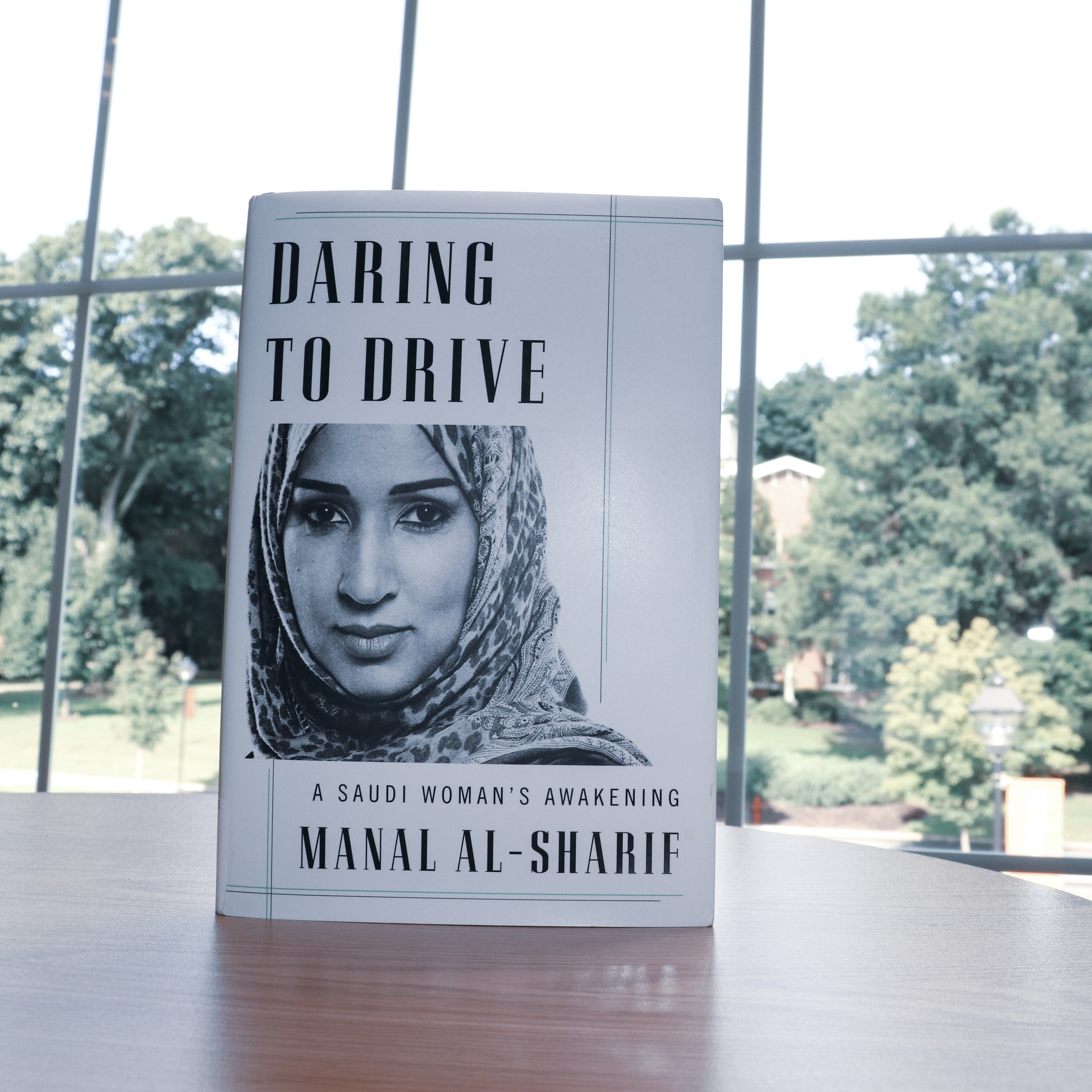
When I returned to Saudi Arabia, so many of the old rules, the rules I had once slavishly followed, no longer seemed to make sense. For years, I had blamed Aramco for the restrictions and the discrimination I endured, but now I saw that what I was chafing against was Saudi society itself. Every restrictive rule existed simply for my “protection”: this was the message that had been hardwired into my brain. But that circuit had been broken while I lived abroad. I was no longer so fearful of what people would think or what judgment would be passed. My colleagues said that the way I dressed, the way I thought, and the way I talked were all “totally different.” And it was true. I had never been exposed to the language of women’s rights or feminism. But even without the vocabulary, I discovered the concepts. There is an old Arabic proverb that translates to “If you have a right, you had better be determined.” Inside the walls of the Aramco compound, I found my determination.
As a young girl growing up in Mecca, Saudi Arabia, Manal al-Sharif followed all the rules. She began wearing the niqab long before it was required, burned her mother’s fashion magazines and her brother’s music tapes (according to Saudi law, these items are considered haram or forbidden). She did what was asked of her. Her transformation from this obedient child to one who was arrested for “driving while female” is subtle. She didn’t set out to be a revolutionary voice, yet, she became one. She merely saw injustice and spoke out. For those of us that have grown up in the United States, speaking out may seem like a small act. However, for a Saudi woman, this act is amazingly brave. Women in Saudi are always under the care (or rule) of a man. It is their father until they are married, then their husband. If they don’t have a father, then a brother can take that role. Either way, women are not autonomous. They need permission from their male guardian to do just about anything. Until 2001, women were not even allowed to have ID cards. Even then, to obtain one, a woman had to have permission. Manal writes about how she fought her father to get his permission to get her own card and how important is was to her:
Finally, after several weeks, he surrendered. We went to the Office of Civil Affairs together and applied for my ID card. The serial number on the card was 1091, meaning only 1090 Saudi women had received their cards in the weeks before me. I tucked the card in my wallet and carried it with pride: for the first time ever, I had something to prove my identity. The most important thing of all was the picture. I looked miserable, but I didn’t care: it showed by face, my eyes, nose and mouth, with nothing blurred or concealed or veiled. It was the day my homeland acknowledged me as a Saudi citizen. But more than that, it was a symbol of my newfound courage to assert myself. I had changed and perhaps, in some small way, so had my father.
As conservative as she and her family were, education was always a priority. Her older sister attended University to become a doctor, and Manal attended to study Information Technology, which was quite rare for a woman. During her University years, Manal was exposed to many other Muslims who were not as conservative. Many of the women did not wear the niqab, and played sports (which was usually banned, however at her University, women were allowed in the Sports Club). When she graduated, she declined to wear the niqab for her first interview, and after being hired by Aramco (a giant Saudi oil company), she starts to abandon the niqab more frequently. That is, until she meets a man and gets married. He insists she return to the niqab, and her experience wearing it after being freed from it is quite precise:
The niqab had a bizarre effect on me; without intending to, I became more and more introverted. I should have been competing with my workmates when we delivered presentations, but I found myself holding back. I no longer fearlessly entered into debates: such behavior didn’t seem to fit with my new attire. Because no one at work could see my facial expression, I would even carry a card with a happy face on one side and a sad face on another, so I could display my feelings. Otherwise, the niqab numbed me.
She has been taught since birth that all the rules that women have to abide by are for their own protection. But Manal begins to notice that being so protected can also make one feel suffocated. In standing up for her own rights as a human, she eventually loses her husband and her job and goes to jail. Her story is unfortunately not unique; nor is her story over. In her quest to make it legal for women to drive, she used social media platforms and created Women2Drive, centralizing the desires of all the women who have had the same desire for freedom. She had friends tweet out her arrest details and made sure she didn’t disappear, as many political detainees do. She continues her voice on Twitter today, making sure the world knows of others who are improperly arrested and detained. She reminds us that “The rain begins with a single drop.”
Discover more from Shelf-Promotion
Subscribe to get the latest posts sent to your email.

You must be logged in to post a comment.